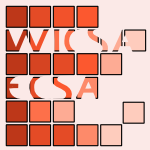124 papers:
 CASE-2015-BoH #clustering #fault #process
CASE-2015-BoH #clustering #fault #process- Qualitative trend clustering of process data for fault diagnosis (ZB, YH), pp. 1584–1588.
 DocEng-2015-BatistaFTFLSSR #assessment #automation #summary
DocEng-2015-BatistaFTFLSSR #assessment #automation #summary- A Quantitative and Qualitative Assessment of Automatic Text Summarization Systems (JB, RF, HT, RF, RDL, SJS, GPeS, MR), pp. 65–68.
 ICPC-2015-SunshineHA #api #protocol #usability
ICPC-2015-SunshineHA #api #protocol #usability- Searching the state space: a qualitative study of API protocol usability (JS, JDH, JA), pp. 82–93.
 ICEIS-v3-2015-ValentimCM #analysis #case study #specification
ICEIS-v3-2015-ValentimCM #analysis #case study #specification- Evaluating an Inspection Technique for Use Case Specifications — Quantitative and Qualitative Analysis (NMCV, TC, JCM), pp. 13–24.
 ICML-2015-SzorenyiBWH #approach #multi
ICML-2015-SzorenyiBWH #approach #multi- Qualitative Multi-Armed Bandits: A Quantile-Based Approach (BS, RBF, PW, EH), pp. 1660–1668.
 SEKE-2015-ValentimCEP #how #usability
SEKE-2015-ValentimCEP #how #usability- How do software engineers apply an early usability inspection technique? A qualitative study (NMCV, TC, BJdSE, RP), pp. 686–691.
 SAC-2015-SioutisSC #composition #graph #on the #reasoning
SAC-2015-SioutisSC #composition #graph #on the #reasoning- On the use and effect of graph decomposition in qualitative spatial and temporal reasoning (MS, YS, JFC), pp. 1874–1879.
 ESEC-FSE-2015-BarikJM #research #social
ESEC-FSE-2015-BarikJM #research #social- I heart hacker news: expanding qualitative research findings by analyzing social news websites (TB, BJ, ERMH), pp. 882–885.
 ICSE-v2-2015-Zieris #analysis #information management #programming
ICSE-v2-2015-Zieris #analysis #information management #programming- Qualitative Analysis of Knowledge Transfer in Pair Programming (FZ), pp. 855–858.
 SPLC-2015-BergerLRGS0CC #industrial #product line #what
SPLC-2015-BergerLRGS0CC #industrial #product line #what- What is a feature?: a qualitative study of features in industrial software product lines (TB, DL, JR, PG, AS, MB, MC, KC), pp. 16–25.
 ASE-2014-AbalBW #analysis #debugging #kernel #linux #variability
ASE-2014-AbalBW #analysis #debugging #kernel #linux #variability- 42 variability bugs in the linux kernel: a qualitative analysis (IA, CB, AW), pp. 421–432.
 ITiCSE-2014-WhalleyK
ITiCSE-2014-WhalleyK- A qualitative think-aloud study of novice programmers’ code writing strategies (JLW, NK), pp. 279–284.
 DUXU-DI-2014-CastroRG #approach #design
DUXU-DI-2014-CastroRG #approach #design- Information Design — Qualitative Approach for Corporative App in iPad (JAGFdC, MVR, JYLG), pp. 203–212.
 HCI-AIMT-2014-TawatsujiMM #reasoning #towards
HCI-AIMT-2014-TawatsujiMM #reasoning #towards- Proposal for the Model of Occurrence of Negative Response toward Humanlike Agent Based on Brain Function by Qualitative Reasoning (YT, KM, TM), pp. 768–778.
 HCI-AS-2014-Fragoso #design #interface
HCI-AS-2014-Fragoso #design #interface- Interface Design Strategies and Disruptions of Gameplay: Notes from a Qualitative Study with First-Person Gamers (SF), pp. 593–603.
 HCI-TMT-2014-AssilaOE #approach #evaluation #human-computer #integration #quality #towards
HCI-TMT-2014-AssilaOE #approach #evaluation #human-computer #integration #quality #towards- Towards Qualitative and Quantitative Data Integration Approach for Enhancing HCI Quality Evaluation (AA, KMdO, HE), pp. 469–480.
 HIMI-AS-2014-KinoeN #design #quality #visual notation
HIMI-AS-2014-KinoeN #design #quality #visual notation- Qualitative Study for the Design of Assistive Technologies for Improving Quality of Life of Visually Impaired (YK, AN), pp. 602–613.
 ICEIS-v2-2014-HernandesTTF #analysis #mining #using #visualisation
ICEIS-v2-2014-HernandesTTF #analysis #mining #using #visualisation- Using Visualization and Text Mining to Improve Qualitative Analysis (EMH, ET, ADT, SCPFF), pp. 201–208.
 ICEIS-v2-2014-MurianaMG #approach #development #information management #open source
ICEIS-v2-2014-MurianaMG #approach #development #information management #open source- Development of Open Source Software, a Qualitative View in a Knowledge Management Approach (LMM, CM, ACBG), pp. 391–399.
 KMIS-2014-CabitzaL #bibliography #perspective #quote
KMIS-2014-CabitzaL #bibliography #perspective #quote- “Made with Knowledge” — Disentangling the IT Knowledge Artifact by a Qualitative Literature Review (FC, AL), pp. 64–75.
 KR-2014-Dufour-LussierHBL #algebra
KR-2014-Dufour-LussierHBL #algebra- Belief Revision in the Propositional Closure of a Qualitative Algebra (VDL, AH, FLB, JL).
 KR-2014-ZhangR #algebra #reasoning #representation
KR-2014-ZhangR #algebra #reasoning #representation- Qualitative Spatial Representation and Reasoning in Angry Birds: The Extended Rectangle Algebra (PZ, JR).
 SEKE-2014-VianaCS #analysis #information management
SEKE-2014-VianaCS #analysis #information management- Knowledge Transfer between Senior and Novice Software Engineers: A Qualitative Analysis (DV, TC, CRBdS), pp. 235–240.
 CAV-2014-ChatterjeeCD #analysis #probability
CAV-2014-ChatterjeeCD #analysis #probability- CEGAR for Qualitative Analysis of Probabilistic Systems (KC, MC, PD), pp. 473–490.
 HCI-AMTE-2013-HashizumeK #approach #comprehension #design #development #experience #user interface
HCI-AMTE-2013-HashizumeK #approach #comprehension #design #development #experience #user interface- Understanding User Experience and Artifact Development through Qualitative Investigation: Ethnographic Approach for Human-Centered Design (AH, MK), pp. 68–76.
 HIMI-HSM-2013-KinoeOS #communication #design #product line
HIMI-HSM-2013-KinoeOS #communication #design #product line- Qualitative Study for Designing Peripheral Communication between Hospitalized Children and Their Family Members (YK, CO, YS), pp. 275–284.
 KEOD-2013-Marc-ZweckerBZB #owl #reasoning
KEOD-2013-Marc-ZweckerBZB #owl #reasoning- Qualitative Spatial Reasoning in RCC8 with OWL and SWRL (SMZ, FdBdB, CZM, FLB), pp. 214–221.
 ICSE-2013-Oster #component #reasoning
ICSE-2013-Oster #component #reasoning- Reasoning with qualitative preferences to develop optimal component-based systems (ZJO), pp. 1456–1458.
 LICS-2013-Halpern #first-order #logic #proving #security #using
LICS-2013-Halpern #first-order #logic #proving #security #using- From Qualitative to Quantitative Proofs of Security Properties Using First-Order Conditional Logic (JYH), pp. 2–3.
 WICSA-ECSA-2012-LytraSZ #architecture #framework #integration #multi
WICSA-ECSA-2012-LytraSZ #architecture #framework #integration #multi- Architectural Decision Making for Service-Based Platform Integration: A Qualitative Multi-Method Study (IL, SS, UZ), pp. 111–120.
 ASE-2012-RabiserGL #tool support
ASE-2012-RabiserGL #tool support- A qualitative study on user guidance capabilities in product configuration tools (RR, PG, ML), pp. 110–119.
 ITiCSE-2012-KrausePR #learning
ITiCSE-2012-KrausePR #learning- Formal learning groups in an introductory CS course: a qualitative exploration (JK, IP, CR), pp. 315–320.
 ITiCSE-2012-Moreno #comparison #evaluation #framework #source code
ITiCSE-2012-Moreno #comparison #evaluation #framework #source code- A qualitative framework for comparison and evaluation of computer science doctoral programs (MdCCM), p. 398.
 MSR-2012-ZamanAH #debugging #performance
MSR-2012-ZamanAH #debugging #performance- A qualitative study on performance bugs (SZ, BA, AEH), pp. 199–208.
 KEOD-2012-HmidaCBN #3d #logic #using
KEOD-2012-HmidaCBN #3d #logic #using- From 9-IM Topological Operators to Qualitative Spatial Relations using 3D Selective Nef Complexes and Logic Rules for Bodies (HBH, CC, FB, CN), pp. 208–213.
 KEOD-2012-RiegenHR #ontology #reasoning
KEOD-2012-RiegenHR #ontology #reasoning- Combining Qualitative Spatial Reasoning and Ontological Reasoning for Supporting Robot Tasks (SvR, LH, PR), pp. 377–380.
 KR-2012-FaberTW #equivalence #optimisation #problem
KR-2012-FaberTW #equivalence #optimisation #problem- Strong Equivalence of Qualitative Optimization Problems (WF, MT, SW).
 KR-2012-Huang #reasoning
KR-2012-Huang #reasoning- Compactness and Its Implications for Qualitative Spatial and Temporal Reasoning (JH).
 KR-2012-Renz #constraints #reasoning
KR-2012-Renz #constraints #reasoning- Implicit Constraints for Qualitative Spatial and Temporal Reasoning (JR).
 ASE-2011-OsterSB #analysis #automation #requirements
ASE-2011-OsterSB #analysis #automation #requirements- Automating analysis of qualitative preferences in goal-oriented requirements engineering (ZJO, GRS, SB), pp. 448–451.
 CSEET-2011-LuLL #analysis #using
CSEET-2011-LuLL #analysis #using- Competence analysis of IT professionals involved in business services — Using a qualitative method (HKL, CHL, PCL), pp. 61–70.
 HCD-2011-ChouC #interactive #physics
HCD-2011-ChouC #interactive #physics- Investigating Users’ Interaction with Physical Products Applying Qualitative and Quantitative Methods (CJC, CC), pp. 3–12.
 HIMI-v1-2011-VrotsouF #metric #similarity
HIMI-v1-2011-VrotsouF #metric #similarity- A Qualitative Study of Similarity Measures in Event-Based Data (KV, CF), pp. 170–179.
 ICSE-2011-LiuZ #program analysis
ICSE-2011-LiuZ #program analysis- Program analysis: from qualitative analysis to quantitative analysis (SL, JZ), pp. 956–959.
 CAV-2011-ChatterjeeHJS #algorithm #analysis #automaton #markov #process
CAV-2011-ChatterjeeHJS #algorithm #analysis #automaton #markov #process- Symbolic Algorithms for Qualitative Analysis of Markov Decision Processes with Büchi Objectives (KC, MH, MJ, NS), pp. 260–276.
 LICS-2011-CarayolHS
LICS-2011-CarayolHS- Qualitative Tree Languages (AC, AH, OS), pp. 13–22.
 HT-2010-ChignellBST #hypermedia
HT-2010-ChignellBST #hypermedia- Evaluating hypertext: the quantitative-qualitative quandary (MHC, PB, SS, EGT), pp. 211–212.
 KR-2010-CondottaL #constraints #network
KR-2010-CondottaL #constraints #network- A Class of df-Consistencies for Qualitative Constraint Networks (JFC, CL).
 SEKE-2010-Radlinski #development #predict #quality #using
SEKE-2010-Radlinski #development #predict #quality #using- Software Development Effort and Quality Prediction Using Bayesian Nets and small Local Qualitative Data (LR), pp. 113–116.
 MoDELS-v2-2010-LussenburgSVW #case study #development #modelling #named
MoDELS-v2-2010-LussenburgSVW #case study #development #modelling #named- Mod4J: A Qualitative Case Study of Model-Driven Software Development (VL, TvdS, JJV, JW), pp. 346–360.
 ICPC-J-2008-RoyCK09 #approach #clone detection #comparison #detection #evaluation #tool support
ICPC-J-2008-RoyCK09 #approach #clone detection #comparison #detection #evaluation #tool support- Comparison and evaluation of code clone detection techniques and tools: A qualitative approach (CKR, JRC, RK), pp. 470–495.
 ICALP-v2-2009-GriponS #concurrent #game studies #probability
ICALP-v2-2009-GriponS #concurrent #game studies #probability- Qualitative Concurrent Stochastic Games with Imperfect Information (VG, OS), pp. 200–211.
 HCD-2009-PohlmeyerBWM #approach #experience #user interface
HCD-2009-PohlmeyerBWM #approach #experience #user interface- The Value of Answers without Question[s]: A Qualitative Approach to User Experience and Aging (AEP, LTMB, HW, JM), pp. 894–903.
 HCI-NT-2009-LeuteritzWK #multi #usability #validation
HCI-NT-2009-LeuteritzWK #multi #usability #validation- Multi-level Validation of the ISOmetrics Questionnaire Based on Qualitative and Quantitative Data Obtained from a Conventional Usability Test (JPL, HW, MK), pp. 304–313.
 KEOD-2009-ArkoudasBK #logic #reasoning
KEOD-2009-ArkoudasBK #logic #reasoning- Qualitative Spatial Reasoning Via 3-Valued Heterogeneous Logic (KA, SB, SK), pp. 80–87.
 LICS-2009-BertrandGG #decidability #game studies #probability
LICS-2009-BertrandGG #decidability #game studies #probability- Qualitative Determinacy and Decidability of Stochastic Games with Signals (NB, BG, HG), pp. 319–328.
 MBT-2009-AichernigBW #consistency #hybrid #modelling #reasoning #testing
MBT-2009-AichernigBW #consistency #hybrid #modelling #reasoning #testing- Conformance Testing of Hybrid Systems with Qualitative Reasoning Models (BKA, HB, FW), pp. 53–69.
 ASE-2008-ChauvelBBJ #adaptation #composition #policy
ASE-2008-ChauvelBBJ #adaptation #composition #policy- Composition of Qualitative Adaptation Policies (FC, OB, IB, JMJ), pp. 455–458.
 ICALP-B-2008-BrazdilFK #branch #markov #process #synthesis #verification
ICALP-B-2008-BrazdilFK #branch #markov #process #synthesis #verification- Controller Synthesis and Verification for Markov Decision Processes with Qualitative Branching Time Objectives (TB, VF, AK), pp. 148–159.
 ICEIS-J-2008-IbrahimNM08a #web
ICEIS-J-2008-IbrahimNM08a #web- “Fact or Fiction?” Imposing Legitimacy for Trustworthy Information on the Web: A Qualitative Inquiry (ENMI, NLMN, SM), pp. 297–306.
 ICPR-2008-KaiserH #analysis #detection
ICPR-2008-KaiserH #analysis #detection- Qualitative analysis of spatio-temporal event detectors (BK, GH), pp. 1–4.
 ICPR-2008-LiaoJ #learning #network #parametricity #semistructured data
ICPR-2008-LiaoJ #learning #network #parametricity #semistructured data- Exploiting qualitative domain knowledge for learning Bayesian network parameters with incomplete data (WL, QJ), pp. 1–4.
 KR-2008-DohertyS #reasoning #using
KR-2008-DohertyS #reasoning #using- Reasoning with Qualitative Preferences and Cardinalities using Generalized Circumscription (PD, AS), pp. 560–570.
 KR-2008-RenzL #automation #calculus #complexity #proving
KR-2008-RenzL #automation #calculus #complexity #proving- Automated Complexity Proofs for Qualitative Spatial and Temporal Calculi (JR, JJL), pp. 715–723.
 SEKE-2008-BrandlFW #modelling #reasoning #testing #using
SEKE-2008-BrandlFW #modelling #reasoning #testing #using- Coverage-based Testing Using Qualitative Reasoning Models (HB, GF, FW), pp. 393–398.
 SEKE-2008-TinkhamTP #assessment #comprehension #java #reverse engineering #source code #testing #tool support
SEKE-2008-TinkhamTP #assessment #comprehension #java #reverse engineering #source code #testing #tool support- A Qualitative Assessment of the Reverse Engineering Capabilities of Unit Testing Tools for Understanding Java Programs (AT, SRT, TP), pp. 111–116.
 CASE-2007-KavakliogluK #fuzzy
CASE-2007-KavakliogluK #fuzzy- A Type-2 Fuzzy Planner with Semi Qualitative World Model for Robocup Domain (CK, OK), pp. 795–799.
 CASE-2007-LiI #image #locality
CASE-2007-LiI #image #locality- Qualitative Localization by Full-View Spherical Image (SL, TI), pp. 566–571.
 HT-2007-LeeH #named
HT-2007-LeeH #named- Qtag: introducing the qualitative tagging system (SEL, SSH), pp. 35–36.
 CSEET-2007-FiedlerK #lens
CSEET-2007-FiedlerK #lens- Electronic Portfolios through a Qualitative Lens (RLF, CK), pp. 247–254.
 IFM-2007-HallerstedeH #modelling #probability
IFM-2007-HallerstedeH #modelling #probability- Qualitative Probabilistic Modelling in Event-B (SH, TSH), pp. 293–312.
 ICEIS-AIDSS-2007-Vallejo-FernandezGL #approach #optimisation
ICEIS-AIDSS-2007-Vallejo-FernandezGL #approach #optimisation- A Qualitative Expert Knowledge Approach to Rendering Optimization (DVF, CGM, LJL), pp. 336–341.
 ICSE-2007-Staron #education #evaluation #learning #process #re-engineering #student #using
ICSE-2007-Staron #education #evaluation #learning #process #re-engineering #student #using- Using Experiments in Software Engineering as an Auxiliary Tool for Teaching — A Qualitative Evaluation from the Perspective of Students’ Learning Process (MS), pp. 673–676.
 CSL-2007-BodirskyC #reasoning #revisited
CSL-2007-BodirskyC #reasoning #revisited- Qualitative Temporal and Spatial Reasoning Revisited (MB, HC), pp. 194–207.
 ITiCSE-2006-PerrenetK #abstraction #algorithm #comprehension #concept #perspective #student
ITiCSE-2006-PerrenetK #abstraction #algorithm #comprehension #concept #perspective #student- Levels of abstraction in students’ understanding of the concept of algorithm: the qualitative perspective (JP, EK), pp. 270–274.
 ICEIS-ISAS-2006-RizkC #concept #research
ICEIS-ISAS-2006-RizkC #concept #research- The Concept of Ethics in Electronic Qualitative Research (NJR, EMC), pp. 126–134.
 ICML-2006-EpshteynD #learning
ICML-2006-EpshteynD #learning- Qualitative reinforcement learning (AE, GD), pp. 305–312.
 KR-2006-BienvenuFM
KR-2006-BienvenuFM- Planning with Qualitative Temporal Preferences (MB, CF, SAM), pp. 134–144.
 KR-2006-DuboisF
KR-2006-DuboisF- Qualitative Decision Making with Bipolar Information (DD, HF), pp. 175–186.
 KR-2006-FritzM
KR-2006-FritzM- Decision-Theoretic GOLOG with Qualitative Preferences (CF, SAM), pp. 153–163.
 IWPC-2005-CeccatoMMMTT #comparison #mining
IWPC-2005-CeccatoMMMTT #comparison #mining- A Qualitative Comparison of Three Aspect Mining Techniques (MC, MM, KM, LM, PT, TT), pp. 13–22.
 CHI-2005-ChoiLKJ #design #mobile
CHI-2005-ChoiLKJ #design #mobile- A qualitative cross-national study of cultural influences on mobile data service design (BC, IL, JK, YJ), pp. 661–670.
 CSCW-2004-JonesGWCT #community #design #requirements
CSCW-2004-JonesGWCT #community #design #requirements- Putting systems into place: a qualitative study of design requirements for location-aware community systems (QJ, SAG, SW, KC, LGT), pp. 202–211.
 ICEIS-v2-2004-LinaresGSLB
ICEIS-v2-2004-LinaresGSLB- A Qualitative Model of the Indebtedness for the Spanish Autonomous Regions (LJL, JMG, JJCS, VRL, JB), pp. 275–280.
 KR-2004-SmythP #probability
KR-2004-SmythP #probability- Qualitative Probabilistic Matching with Hierarchical Descriptions (CS, DP), pp. 479–487.
 CADE-2003-Cohn #reasoning
CADE-2003-Cohn #reasoning- Reasoning about Qualitative Representations of Space and Time (AGC), p. 334.
 ICML-2002-SucB #reverse engineering
ICML-2002-SucB #reverse engineering- Qualitative reverse engineering (DS, IB), pp. 610–617.
 KR-2002-BrewkaBB #logic
KR-2002-BrewkaBB #logic- Qualitative Choice Logic (GB, SB, DLB), pp. 158–169.
 KR-2002-HazarikaC
KR-2002-HazarikaC- Abducing Qualitative Spatio-Temporal Histories from Partial Observations (SMH, AGC), pp. 14–25.
 ITiCSE-2001-Medley #education #research #using
ITiCSE-2001-Medley #education #research #using- Using qualitative research software for CS education research (MDM), pp. 141–144.
 ICEIS-v1-2001-SuarezAGO #constraints #development #programming #reasoning
ICEIS-v1-2001-SuarezAGO #constraints #development #programming #reasoning- Qualitative Reasoning for Software Development Project by Constraint Programming (AJS, PJA, RMG, JAO), pp. 481–488.
 ASE-2000-FeatherCL #risk management #tool support
ASE-2000-FeatherCL #risk management #tool support- Combining the Best Attributes of Qualitative and Quantitative Risk Management Tool Support (MSF, SLC, TWL), pp. 309–312.
 ICPR-v1-2000-AndreuP #estimation #fuzzy
ICPR-v1-2000-AndreuP #estimation #fuzzy- Fuzzy Relative Positions for Qualitative Pose Estimation (JPA, AP), pp. 1384–1387.
 ICPR-v1-2000-YanaiD #image #recognition
ICPR-v1-2000-YanaiD #image #recognition- Recognition of Indoor Images Employing Qualitative Model Fitting and Supporting Relation between Objects (KY, KD), pp. 1964–1967.
 ICPR-v3-2000-DuricRR
ICPR-v3-2000-DuricRR- Qualitative Description of Camera Motion from Histograms of Normal Flow (ZD, ER, AR), pp. 3198–3202.
 KR-2000-AmorBDGP #framework #independence #nondeterminism
KR-2000-AmorBDGP #framework #independence #nondeterminism- Independence in qualitative uncertainty frameworks (NBA, SB, DD, HG, HP), pp. 235–246.
 HCI-CCAD-1999-Honold #elicitation #requirements
HCI-CCAD-1999-Honold #elicitation #requirements- Focus groups: A qualitative method to elicit culture-specific user requirements (PH), pp. 3–7.
 HCI-EI-1999-LindstromH #difference #industrial
HCI-EI-1999-LindstromH #difference #industrial- VDT Use and its Relation to Job Stress in Various Sectors of industry in Finland: Qualitative Differences (KL, VH), pp. 187–192.
 ICPR-1998-PinzA #reasoning #recognition
ICPR-1998-PinzA #reasoning #recognition- Qualitative spatial reasoning to infer the camera position in generic object recognition (AP, JPA), pp. 770–773.
 KR-1998-DuboisGPZ
KR-1998-DuboisGPZ- Making Decision in a Qualitative Setting: from Decision under Uncertaintly to Case-based Decision (DD, LG, HP, AZ), pp. 594–607.
 KR-1998-Muller
KR-1998-Muller- A Qualitative Theory of Motion Based on Spatio-Temporal Primitives (PM), pp. 131–143.
 IWTCS-1998-BaumgartenW #testing
IWTCS-1998-BaumgartenW #testing- Qualitative Notions of Testability (BB, HW), pp. 345–360.
 HCI-CC-1997-CoppolaBS #design #quality
HCI-CC-1997-CoppolaBS #design #quality- The Qualit Esprit Project on Sociotechnical Systems (STS) Design and Quality of Working Life (QWL) (BC, FB, TS), pp. 225–228.
 HCI-CC-1997-ItohMGA #behaviour #process
HCI-CC-1997-ItohMGA #behaviour #process- Analyzing Qualitative Data with SPROT (Structural Process Chart of a Task Oriented Behavior) (MI, YM, SG, TA), pp. 541–544.
 ICPR-1996-LiTH #representation
ICPR-1996-LiTH #representation- Qualitative representation of outdoor environment along route (SL, ST, AH), pp. 176–180.
 KR-1996-BacchusG #independence
KR-1996-BacchusG #independence- Utility Independence in a Qualitative Decision Theory (FB, AJG), pp. 542–552.
 KR-1996-Tennenholtz #equilibrium #on the #social
KR-1996-Tennenholtz #equilibrium #on the #social- On Stable Social Laws and Qualitative Equilibrium for Risk-Averse Agents (MT), pp. 553–561.
 ICSM-1995-TaramaaMK #framework #process
ICSM-1995-TaramaaMK #framework #process- Improving application management process through qualitative framework (JT, MM, TK), pp. 327–336.
 CIKM-1994-Johannesson #integration #reasoning
CIKM-1994-Johannesson #integration #reasoning- Linguistic Instruments and Qualitative Reasoning for Schema Integration (PJ), pp. 252–262.
 KR-1994-Boutilier #logic #towards
KR-1994-Boutilier #logic #towards- Toward a Logic for Qualitative Decision Theory (CB), pp. 75–86.
 KR-1994-GereviniS #performance #reasoning
KR-1994-GereviniS #performance #reasoning- An Efficient Method for Managing Disjunctions in Qualitative Temporal Reasoning (AG, LKS), pp. 214–225.
 HCI-ACS-1993-VendaH #analysis #complexity
HCI-ACS-1993-VendaH #analysis #complexity- Qualitative and Quantitative Analysis of Human Decision-Making Complexity (VFV, HWH), pp. 636–641.
 ICML-1993-ClarkM #induction #learning #modelling #using
ICML-1993-ClarkM #induction #learning #modelling #using- Using Qualitative Models to Guide Inductive Learning (PC, SM), pp. 49–56.
 SAC-1993-AlGhamdiU #programming language
SAC-1993-AlGhamdiU #programming language- Comparing and Assessing Programming Languages: Basis for a Qualitative Methodology (JA, JEU), pp. 222–229.
 SAC-1993-SyangS #feedback #simulation
SAC-1993-SyangS #feedback #simulation- Qualitative Simulation: A Feedback Control System (AS, YS), pp. 504–510.
 SIGMOD-1992-HoelS #comparison #data type #database #scalability
SIGMOD-1992-HoelS #comparison #data type #database #scalability- A Qualitative Comparison Study of Data Structures for Large Line Segment Databases (EGH, HS), pp. 205–214.
 KR-1992-Davis92a #axiom #process
KR-1992-Davis92a #axiom #process- Axiomatizing Qualitative Process Theory (ED), pp. 177–188.
 KR-1991-Wellman #constraints #multi #simulation
KR-1991-Wellman #constraints #multi #simulation- Qualitative Simulation with Multivariate Constraints (MPW), pp. 547–557.
 KR-1991-WellmanH
KR-1991-WellmanH- Qualitative Intercausal Relations, or Explaining “Explaining Away” (MPW, MH), pp. 535–546.
 ML-1991-BratkoMV #learning #modelling
ML-1991-BratkoMV #learning #modelling- Learning Qualitative Models of Dynamic Systems (IB, SM, AV), pp. 385–388.
 ML-1991-Feng #fault
ML-1991-Feng #fault- Inducing Temporal Fault Diagnostic Rules from a Qualitative Model (CF), pp. 403–406.
 ISLP-1991-MozeticH #constraints #logic programming #modelling
ISLP-1991-MozeticH #constraints #logic programming #modelling- Integrating Numerical and Qualitative Models within Constraint Logic Programming (IM, CH), pp. 678–693.
 SLP-1987-OhwadaM87 #logic programming #parallel #simulation
SLP-1987-OhwadaM87 #logic programming #parallel #simulation- Qualitative Simulation in Parallel Logic Programming (HO, FM), pp. 480–489.
 LICS-1986-Girard #semantics
LICS-1986-Girard #semantics- Quantitative and Qualitative Semantics (Abstract of Invited Lecture) (JYG), p. 258.
 CASE-2015-BoH #clustering #fault #process
CASE-2015-BoH #clustering #fault #process DocEng-2015-BatistaFTFLSSR #assessment #automation #summary
DocEng-2015-BatistaFTFLSSR #assessment #automation #summary ICPC-2015-SunshineHA #api #protocol #usability
ICPC-2015-SunshineHA #api #protocol #usability ICEIS-v3-2015-ValentimCM #analysis #case study #specification
ICEIS-v3-2015-ValentimCM #analysis #case study #specification ICML-2015-SzorenyiBWH #approach #multi
ICML-2015-SzorenyiBWH #approach #multi SEKE-2015-ValentimCEP #how #usability
SEKE-2015-ValentimCEP #how #usability SAC-2015-SioutisSC #composition #graph #on the #reasoning
SAC-2015-SioutisSC #composition #graph #on the #reasoning ESEC-FSE-2015-BarikJM #research #social
ESEC-FSE-2015-BarikJM #research #social ICSE-v2-2015-Zieris #analysis #information management #programming
ICSE-v2-2015-Zieris #analysis #information management #programming SPLC-2015-BergerLRGS0CC #industrial #product line #what
SPLC-2015-BergerLRGS0CC #industrial #product line #what ASE-2014-AbalBW #analysis #debugging #kernel #linux #variability
ASE-2014-AbalBW #analysis #debugging #kernel #linux #variability ITiCSE-2014-WhalleyK
ITiCSE-2014-WhalleyK DUXU-DI-2014-CastroRG #approach #design
DUXU-DI-2014-CastroRG #approach #design HCI-AIMT-2014-TawatsujiMM #reasoning #towards
HCI-AIMT-2014-TawatsujiMM #reasoning #towards HCI-AS-2014-Fragoso #design #interface
HCI-AS-2014-Fragoso #design #interface HCI-TMT-2014-AssilaOE #approach #evaluation #human-computer #integration #quality #towards
HCI-TMT-2014-AssilaOE #approach #evaluation #human-computer #integration #quality #towards HIMI-AS-2014-KinoeN #design #quality #visual notation
HIMI-AS-2014-KinoeN #design #quality #visual notation ICEIS-v2-2014-HernandesTTF #analysis #mining #using #visualisation
ICEIS-v2-2014-HernandesTTF #analysis #mining #using #visualisation ICEIS-v2-2014-MurianaMG #approach #development #information management #open source
ICEIS-v2-2014-MurianaMG #approach #development #information management #open source KMIS-2014-CabitzaL #bibliography #perspective #quote
KMIS-2014-CabitzaL #bibliography #perspective #quote KR-2014-Dufour-LussierHBL #algebra
KR-2014-Dufour-LussierHBL #algebra KR-2014-ZhangR #algebra #reasoning #representation
KR-2014-ZhangR #algebra #reasoning #representation SEKE-2014-VianaCS #analysis #information management
SEKE-2014-VianaCS #analysis #information management CAV-2014-ChatterjeeCD #analysis #probability
CAV-2014-ChatterjeeCD #analysis #probability HCI-AMTE-2013-HashizumeK #approach #comprehension #design #development #experience #user interface
HCI-AMTE-2013-HashizumeK #approach #comprehension #design #development #experience #user interface HIMI-HSM-2013-KinoeOS #communication #design #product line
HIMI-HSM-2013-KinoeOS #communication #design #product line KEOD-2013-Marc-ZweckerBZB #owl #reasoning
KEOD-2013-Marc-ZweckerBZB #owl #reasoning ICSE-2013-Oster #component #reasoning
ICSE-2013-Oster #component #reasoning LICS-2013-Halpern #first-order #logic #proving #security #using
LICS-2013-Halpern #first-order #logic #proving #security #using WICSA-ECSA-2012-LytraSZ #architecture #framework #integration #multi
WICSA-ECSA-2012-LytraSZ #architecture #framework #integration #multi ASE-2012-RabiserGL #tool support
ASE-2012-RabiserGL #tool support ITiCSE-2012-KrausePR #learning
ITiCSE-2012-KrausePR #learning ITiCSE-2012-Moreno #comparison #evaluation #framework #source code
ITiCSE-2012-Moreno #comparison #evaluation #framework #source code MSR-2012-ZamanAH #debugging #performance
MSR-2012-ZamanAH #debugging #performance KEOD-2012-HmidaCBN #3d #logic #using
KEOD-2012-HmidaCBN #3d #logic #using KEOD-2012-RiegenHR #ontology #reasoning
KEOD-2012-RiegenHR #ontology #reasoning KR-2012-FaberTW #equivalence #optimisation #problem
KR-2012-FaberTW #equivalence #optimisation #problem KR-2012-Huang #reasoning
KR-2012-Huang #reasoning KR-2012-Renz #constraints #reasoning
KR-2012-Renz #constraints #reasoning ASE-2011-OsterSB #analysis #automation #requirements
ASE-2011-OsterSB #analysis #automation #requirements CSEET-2011-LuLL #analysis #using
CSEET-2011-LuLL #analysis #using HCD-2011-ChouC #interactive #physics
HCD-2011-ChouC #interactive #physics HIMI-v1-2011-VrotsouF #metric #similarity
HIMI-v1-2011-VrotsouF #metric #similarity ICSE-2011-LiuZ #program analysis
ICSE-2011-LiuZ #program analysis CAV-2011-ChatterjeeHJS #algorithm #analysis #automaton #markov #process
CAV-2011-ChatterjeeHJS #algorithm #analysis #automaton #markov #process LICS-2011-CarayolHS
LICS-2011-CarayolHS HT-2010-ChignellBST #hypermedia
HT-2010-ChignellBST #hypermedia KR-2010-CondottaL #constraints #network
KR-2010-CondottaL #constraints #network SEKE-2010-Radlinski #development #predict #quality #using
SEKE-2010-Radlinski #development #predict #quality #using MoDELS-v2-2010-LussenburgSVW #case study #development #modelling #named
MoDELS-v2-2010-LussenburgSVW #case study #development #modelling #named ICPC-J-2008-RoyCK09 #approach #clone detection #comparison #detection #evaluation #tool support
ICPC-J-2008-RoyCK09 #approach #clone detection #comparison #detection #evaluation #tool support ICALP-v2-2009-GriponS #concurrent #game studies #probability
ICALP-v2-2009-GriponS #concurrent #game studies #probability HCD-2009-PohlmeyerBWM #approach #experience #user interface
HCD-2009-PohlmeyerBWM #approach #experience #user interface HCI-NT-2009-LeuteritzWK #multi #usability #validation
HCI-NT-2009-LeuteritzWK #multi #usability #validation KEOD-2009-ArkoudasBK #logic #reasoning
KEOD-2009-ArkoudasBK #logic #reasoning LICS-2009-BertrandGG #decidability #game studies #probability
LICS-2009-BertrandGG #decidability #game studies #probability MBT-2009-AichernigBW #consistency #hybrid #modelling #reasoning #testing
MBT-2009-AichernigBW #consistency #hybrid #modelling #reasoning #testing ASE-2008-ChauvelBBJ #adaptation #composition #policy
ASE-2008-ChauvelBBJ #adaptation #composition #policy ICALP-B-2008-BrazdilFK #branch #markov #process #synthesis #verification
ICALP-B-2008-BrazdilFK #branch #markov #process #synthesis #verification ICEIS-J-2008-IbrahimNM08a #web
ICEIS-J-2008-IbrahimNM08a #web ICPR-2008-KaiserH #analysis #detection
ICPR-2008-KaiserH #analysis #detection ICPR-2008-LiaoJ #learning #network #parametricity #semistructured data
ICPR-2008-LiaoJ #learning #network #parametricity #semistructured data KR-2008-DohertyS #reasoning #using
KR-2008-DohertyS #reasoning #using KR-2008-RenzL #automation #calculus #complexity #proving
KR-2008-RenzL #automation #calculus #complexity #proving SEKE-2008-BrandlFW #modelling #reasoning #testing #using
SEKE-2008-BrandlFW #modelling #reasoning #testing #using SEKE-2008-TinkhamTP #assessment #comprehension #java #reverse engineering #source code #testing #tool support
SEKE-2008-TinkhamTP #assessment #comprehension #java #reverse engineering #source code #testing #tool support CASE-2007-KavakliogluK #fuzzy
CASE-2007-KavakliogluK #fuzzy CASE-2007-LiI #image #locality
CASE-2007-LiI #image #locality HT-2007-LeeH #named
HT-2007-LeeH #named CSEET-2007-FiedlerK #lens
CSEET-2007-FiedlerK #lens IFM-2007-HallerstedeH #modelling #probability
IFM-2007-HallerstedeH #modelling #probability ICEIS-AIDSS-2007-Vallejo-FernandezGL #approach #optimisation
ICEIS-AIDSS-2007-Vallejo-FernandezGL #approach #optimisation ICSE-2007-Staron #education #evaluation #learning #process #re-engineering #student #using
ICSE-2007-Staron #education #evaluation #learning #process #re-engineering #student #using CSL-2007-BodirskyC #reasoning #revisited
CSL-2007-BodirskyC #reasoning #revisited ITiCSE-2006-PerrenetK #abstraction #algorithm #comprehension #concept #perspective #student
ITiCSE-2006-PerrenetK #abstraction #algorithm #comprehension #concept #perspective #student ICEIS-ISAS-2006-RizkC #concept #research
ICEIS-ISAS-2006-RizkC #concept #research ICML-2006-EpshteynD #learning
ICML-2006-EpshteynD #learning KR-2006-BienvenuFM
KR-2006-BienvenuFM KR-2006-DuboisF
KR-2006-DuboisF KR-2006-FritzM
KR-2006-FritzM IWPC-2005-CeccatoMMMTT #comparison #mining
IWPC-2005-CeccatoMMMTT #comparison #mining CHI-2005-ChoiLKJ #design #mobile
CHI-2005-ChoiLKJ #design #mobile CSCW-2004-JonesGWCT #community #design #requirements
CSCW-2004-JonesGWCT #community #design #requirements ICEIS-v2-2004-LinaresGSLB
ICEIS-v2-2004-LinaresGSLB KR-2004-SmythP #probability
KR-2004-SmythP #probability CADE-2003-Cohn #reasoning
CADE-2003-Cohn #reasoning ICML-2002-SucB #reverse engineering
ICML-2002-SucB #reverse engineering KR-2002-BrewkaBB #logic
KR-2002-BrewkaBB #logic KR-2002-HazarikaC
KR-2002-HazarikaC ITiCSE-2001-Medley #education #research #using
ITiCSE-2001-Medley #education #research #using ICEIS-v1-2001-SuarezAGO #constraints #development #programming #reasoning
ICEIS-v1-2001-SuarezAGO #constraints #development #programming #reasoning ASE-2000-FeatherCL #risk management #tool support
ASE-2000-FeatherCL #risk management #tool support ICPR-v1-2000-AndreuP #estimation #fuzzy
ICPR-v1-2000-AndreuP #estimation #fuzzy ICPR-v1-2000-YanaiD #image #recognition
ICPR-v1-2000-YanaiD #image #recognition ICPR-v3-2000-DuricRR
ICPR-v3-2000-DuricRR KR-2000-AmorBDGP #framework #independence #nondeterminism
KR-2000-AmorBDGP #framework #independence #nondeterminism HCI-CCAD-1999-Honold #elicitation #requirements
HCI-CCAD-1999-Honold #elicitation #requirements HCI-EI-1999-LindstromH #difference #industrial
HCI-EI-1999-LindstromH #difference #industrial ICPR-1998-PinzA #reasoning #recognition
ICPR-1998-PinzA #reasoning #recognition KR-1998-DuboisGPZ
KR-1998-DuboisGPZ KR-1998-Muller
KR-1998-Muller IWTCS-1998-BaumgartenW #testing
IWTCS-1998-BaumgartenW #testing HCI-CC-1997-CoppolaBS #design #quality
HCI-CC-1997-CoppolaBS #design #quality HCI-CC-1997-ItohMGA #behaviour #process
HCI-CC-1997-ItohMGA #behaviour #process ICPR-1996-LiTH #representation
ICPR-1996-LiTH #representation KR-1996-BacchusG #independence
KR-1996-BacchusG #independence KR-1996-Tennenholtz #equilibrium #on the #social
KR-1996-Tennenholtz #equilibrium #on the #social ICSM-1995-TaramaaMK #framework #process
ICSM-1995-TaramaaMK #framework #process CIKM-1994-Johannesson #integration #reasoning
CIKM-1994-Johannesson #integration #reasoning KR-1994-Boutilier #logic #towards
KR-1994-Boutilier #logic #towards KR-1994-GereviniS #performance #reasoning
KR-1994-GereviniS #performance #reasoning HCI-ACS-1993-VendaH #analysis #complexity
HCI-ACS-1993-VendaH #analysis #complexity ICML-1993-ClarkM #induction #learning #modelling #using
ICML-1993-ClarkM #induction #learning #modelling #using SAC-1993-AlGhamdiU #programming language
SAC-1993-AlGhamdiU #programming language SAC-1993-SyangS #feedback #simulation
SAC-1993-SyangS #feedback #simulation SIGMOD-1992-HoelS #comparison #data type #database #scalability
SIGMOD-1992-HoelS #comparison #data type #database #scalability KR-1992-Davis92a #axiom #process
KR-1992-Davis92a #axiom #process KR-1991-Wellman #constraints #multi #simulation
KR-1991-Wellman #constraints #multi #simulation KR-1991-WellmanH
KR-1991-WellmanH ML-1991-BratkoMV #learning #modelling
ML-1991-BratkoMV #learning #modelling ML-1991-Feng #fault
ML-1991-Feng #fault ISLP-1991-MozeticH #constraints #logic programming #modelling
ISLP-1991-MozeticH #constraints #logic programming #modelling SLP-1987-OhwadaM87 #logic programming #parallel #simulation
SLP-1987-OhwadaM87 #logic programming #parallel #simulation LICS-1986-Girard #semantics
LICS-1986-Girard #semantics









